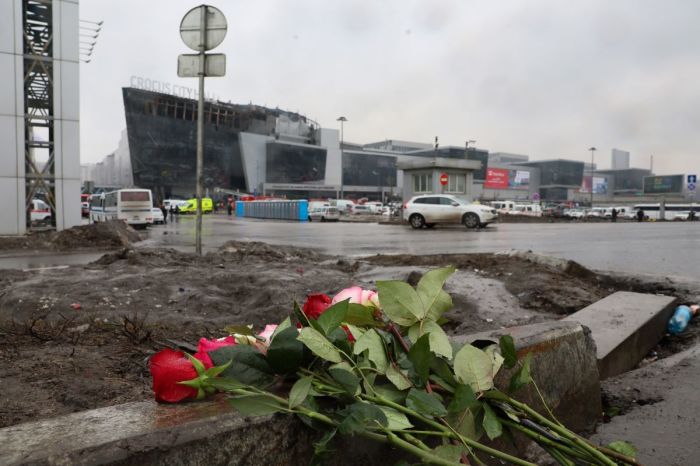France raises terror alert level after deadly Moscow attack by ISIS-K kills over 130

France has escalated its terror alert to the highest level following the Islamic State’s claim of orchestrating a devastating attack in Moscow, Russia, which resulted in the death of at least 137 individuals.
The decision, announced by Prime Minister Gabriel Attal, precedes the upcoming Paris Olympics, reflecting the intensified security concerns.
"Given the Islamic State's claim of responsibility for the attack and the threats weighing on our country, we have decided to raise the Vigipirate posture to its highest level: attack emergency," Attal wrote in a tweet, translated from French.
During Friday’s catastrophic incident in a Moscow suburb, a concert hall became the scene of Europe’s deadliest terrorist act attributed to the jihadist faction, France 24 reported.
The Islamic State’s Afghan affiliate, ISIS-K, claimed responsibility for this massacre. In the aftermath, French President Emmanuel Macron convened an urgent security meeting, addressing the severe implications of the attack and its potential threat to France.
France’s terror alert system, comprising three levels, is now at its peak, a status reserved for times of immediate threat or following significant attacks, either domestically or internationally.
This heightened alert enables the deployment of extraordinary security measures, including increased armed patrols in vital public areas such as train stations, airports and religious sites.
The country’s history with jihadist terrorism, notably the 2015 Bataclan concert hall attack, underscores the gravity of the current threat level. With the Paris Olympics and Paralympics on the horizon, attracting millions of international visitors, the security apparatus is under immense pressure.
The opening ceremony, scheduled for July 26, featuring a unique boat procession along the Seine River, is of particular concern due to the expected large gatherings.
In Moscow, the tragedy unfolded with gunmen launching a deadly assault in a concert hall. Survivors reported that emergency exits were inoperable, contributing to the chaos and casualties, according to The Telegraph.
An anonymous survivor told the Moskovsky Komsomolets newspaper that the gunmen initiated their assault at the concert hall’s main entrance. He opted to exit through the same entrance, as it was the sole escape route available.
“We tried the fire escape ladder, but it was closed. People climbed the ladder, descended the ladder, all closed,” he was quoted as saying.
As per Russian media, smoke inhalation might have claimed more lives than the gunfire. Disturbing accounts from the scene describe people trapped, attempting to escape through jammed exits, with some victims found near these blocked routes.
The incident has also reignited concerns over fire safety in Russia, recalling the 2018 Siberian shopping mall fire where locked exits and disabled alarms led to over 60 deaths. Despite claims from Crocus City Hall’s owner, Aras Agalarov, denying that exits were locked, the tragedy has left many questioning the safety measures in place.
The Moscow attack, now the deadliest on Russian soil in recent years, has left families in anguish, uncertain of their loved ones’ fates.
Moscow’s health department is undertaking the grim task of identifying victims through DNA analysis, a process expected to extend over two weeks. Meanwhile, efforts to dismantle the damaged venue continue as authorities and rescue teams navigate the aftermath of this horrific event.




























